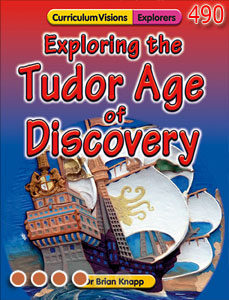Sir Walter Raleigh was born in 1554 and was executed on 29 October 1618. He was one of the most extraordinary people in the history of England, and is one of the most notable people of Tudor (Elizabeth I) and early Stewart (James I) times, alongside Sir Francis Drake.
Raleigh was a nobleman whose origins were in Devon. In his early life, he went to fight against Irish rebellions and was given 40,000 acres of land in Ireland by Queen Elizabeth I as a reward. As well as being a soldier, he was a writer, poet, politician, spy, and explorer. He was the cousin of Sir Richard Grenville. His expedition was one of the first to bring back new produce from the Americas, including tobacco. Above all, he moved in the circles of the royal family, which was mostly greatly to his advantage in the times of Queen Elizabeth, but it would finally cost him his life.
Raleigh was adventurous, but this made him less able to look after money. The lands he was given in Ireland went into debt and he had to sell them at a bargain price.
In 1585, Raleigh was knighted by the queen. He became a member of parliament for Devon.
It was his plan to colonise the New World. Queen Elizabeth I was very keen that the English should have a colony, but she couldn't afford to pay for it herself. So Sir Humphrey Gilbert paid for, and organised it. In 1578, Sir Humphrey Gilbert received letters patent from the Queen to sail in search of 'remote, heathen and barbarous lands and territories not possessed by any Christian princes'.
Sir Humphrey Gilbert's half-brother was Sir Walter Raleigh. Before Gilbert could set out on his effort to start the colony he drowned, and so the instructions to set up a colony (which were written in a royal charter) were transferred to Sir Walter Raleigh. He, in turn, instructed Ralph Lane and Richard Grenville, Raleigh's cousin.
Raleigh not only wanted to find riches from the New World similar to those the Spanish had found, he had more pressing matters. He was being employed as a privateer (official pirate) and like Sir Francis Drake, he needed a base just north of the Spanish Main from which to send his privateers on raids against the treasure fleets of Spain. When Grenville drowned, it was Raleigh who was given the charter, allowing him to go ahead with the "Colony and Dominion of Virginia". To find out more about this go to the search term Roanoke.

Raleigh and his friends funded this adventure, although it did not turn out well because they could not get enough money together to supply the colonists properly, and the colony of Roanoke failed. But this was the first toehold on the New World that would pave the way for much more successful colonies in the next century.
Raleigh had his own ship built, which he called the Ark. Ships carried their owner's name at this time, so it was called Ark Raleigh. When the Queen bought this ship from Raleigh it became Ark Royal. The name Ark Royal has ever since been given to some of the most famous warships in the navy.
In 1588 Raleigh was appointed Vice Admiral of Devon, and as such he was responsible for the defence of the coast. This was the year of the Spanish Armada, although it was Sir Francis Drake who was responsible for defeating the Spanish Armada.
Raleigh was then put in charge of setting up an expedition to attack the Spanish coast, and while he was doing this he accidentally captured the Portuguese Madre de Deus treasure ship coming back from the Spice Islands of Asia. Unfortunately for Sir Walter, after he brought the ship into harbour in England, it was not sufficiently well protected from the locals, and most of the cargo was stolen.
It was also the adventurous character of Raleigh that made him go seeking the fabled city of gold called El Dorado in South America. Although he did not find it, he explored what is now Guyana and eastern Venezuela. He wrote up his experiences in a published book, adding to the legend. He did not find what he was seeking.
The first of his expeditions to find El Dorado was in 1594, when Queen Elizabeth was on the throne.
The Queen died in 1603, and Raleigh was arrested and imprisoned in the Tower of London and tried for treason for plotting against King James I. He was given a suspended death sentence but kept in the Tower until 1616. It is during that time that he wrote many books, including 'The Historie of the World'. Finally, in 1616, Raleigh was released so that he could lead a second expedition to Venezuela in search of El Dorado.
This second expedition in 1616 was no more successful, and made worse because his men, not having been able to find gold, attacked a Spanish fort. The Spanish ambassador demanded that King James I now go ahead with Raleigh's suspended death sentence. To save another war with Spain, James had Raleigh arrested. Raleigh was beheaded on 29 October 1618. His execution was seen as unjust.








